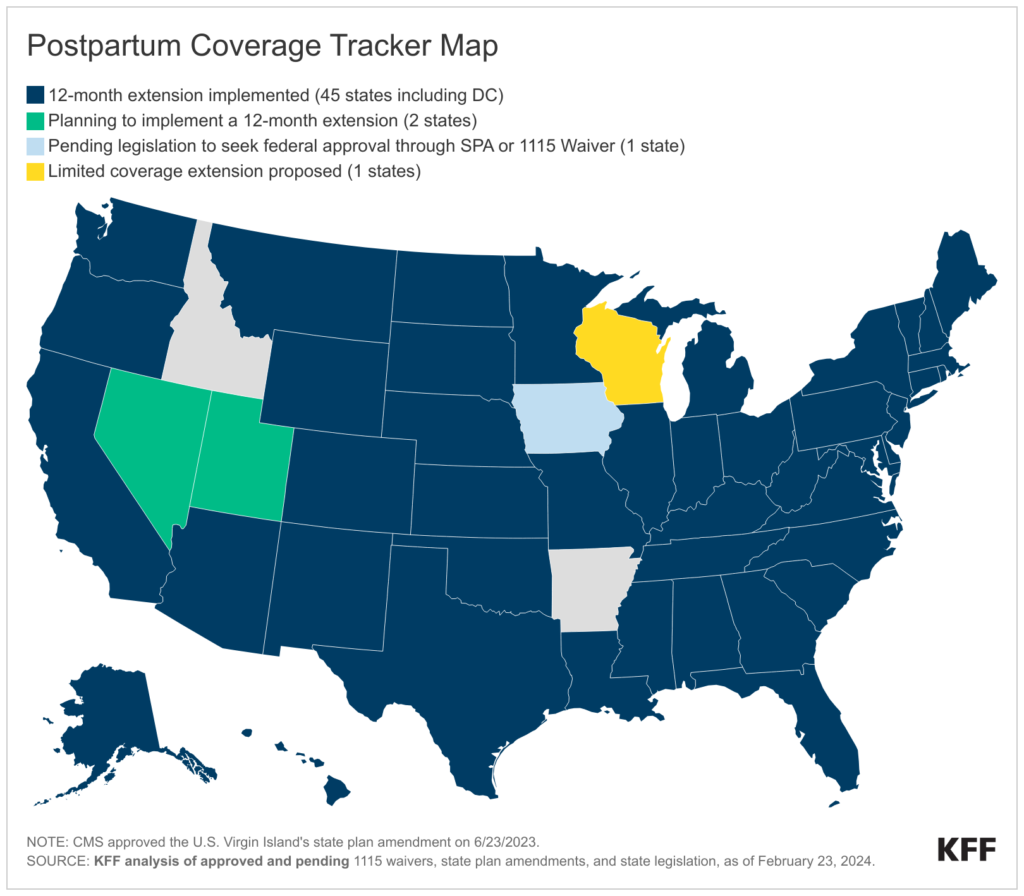
We are pleased to see so much focus and attention in Arkansas on reducing our state’s maternal mortality rate. It’s important that, as this discussion continues, we do not lose sight of the importance of critical public policy changes to ensure that parents and babies are as healthy as possible.
Last month, Senator John Boozman convened a panel discussion that included Governor Sarah Huckabee Sanders, Congressman French Hill, and several maternal and community health leaders. During the event, Governor Sanders remarked that “everything is on the table” when it comes to addressing Arkansas’s abysmal state of maternal and child health outcomes. After the event, Governor Sanders stated her opposition to bipartisan calls to pass an extension of pregnancy Medicaid coverage to a full year postpartum. Right now, such coverage ends just 60 days after delivery.
We are now one of only two states that have failed to extend coverage at all, even though we’re 50th among the states in maternal mortality. Our state’s own Maternal Mortality Review Committee considers 92% of maternal deaths to be preventable. And those deaths are only part of the story. Every year there are thousands more cases of severe maternal complications — maternal morbidity or “near misses” — experienced during the birthing and postpartum journey. Worse yet, Black women in Arkansas are more than twice as likely as White women to experience a pregnancy-related death, and Black babies are almost twice as likely to die in the first year of life.

If we’re putting everything on the table, here are a few options the state should consider immediately:
- Extend postpartum coverage to 12 months for new mothers in Medicaid. The last thing new moms need to worry about is losing insurance and administrative hurdles shortly after giving birth, especially when about a third of pregnancy-related deaths occur after 42 days postpartum. Extending postpartum coverage to 12 months is also supported by Arkansas’s Maternal Mortality Review Committee.
- Fast-track temporary Medicaid coverage to pregnant people likely to qualify for Medicaid. This would reduce the length of time women have to wait before getting prenatal care. Right now, women who are eligible for Medicaid sometimes wait months to get coverage – longer than allowed under federal law – even though it’s abundantly clear that prenatal care is essential to both infant and maternal health. This is an easy fix that the State can implement immediately.
- Expand the maternal health workforce:
- A growing number of states are allowing Medicaid to reimburse community-based providers like doulas to provide prevention, navigation, and support services during pregnancy and to new moms. Research shows that doula help can support maternal and infant well-being. Working with birth workers to collaboratively adopt standards of certification is important to seeing its success.
- Midwifery care has been shown to improve health outcomes for lower-risk pregnancies and reduce Cesarian section rates. We need to better integrate midwives into care settings to advance community maternal health provider availability. We should look to reimburse other types of midwives, like Certified Professional Midwives (CPMs) and Certified Midwives (CMs), in addition to Certified Nurse Midwives (CNMs).
- Change the state-level policies that unnecessarily make it more difficult for Arkansas families to obtain SNAP benefits and to get enrolled in the WIC program – the nutrition program for Women, infants and Children. Arkansas has the lowest WIC enrollment in the country at 35% eligible individuals enrolled. We choose to make it harder than it is in other states, and there’s no reason for that. These barriers to address may include not allowing applicant phone interviews, required signature policies, and requiring benefit cards to be loaded in-person every time.
- Overhaul harsh policies in the state’s cash assistance program, Temporary Assistance for Needy Families (TANF). We need to increase the monthly benefit level, which is $204 for a family of three. That’s the lowest benefit level in the country as of 2022.
- Paid family leave. It’s one important way that public policy can help promote healthy development so that children can grow into successful adults. Parental leave promotes bonding between parent and child, allowing mothers to breastfeed longer, and has even been linked to a reduction in infant mortality rates.
- Invest state dollars to help close the gap in infant and toddler care. There is a real dearth of child care options for infants and young children in Arkansas, especially high-quality care. Even the highest income families have trouble finding high quality infant care, which means it’s infinitely harder for low-income families to find the same level of care in the critical early years for children’s brain development.
